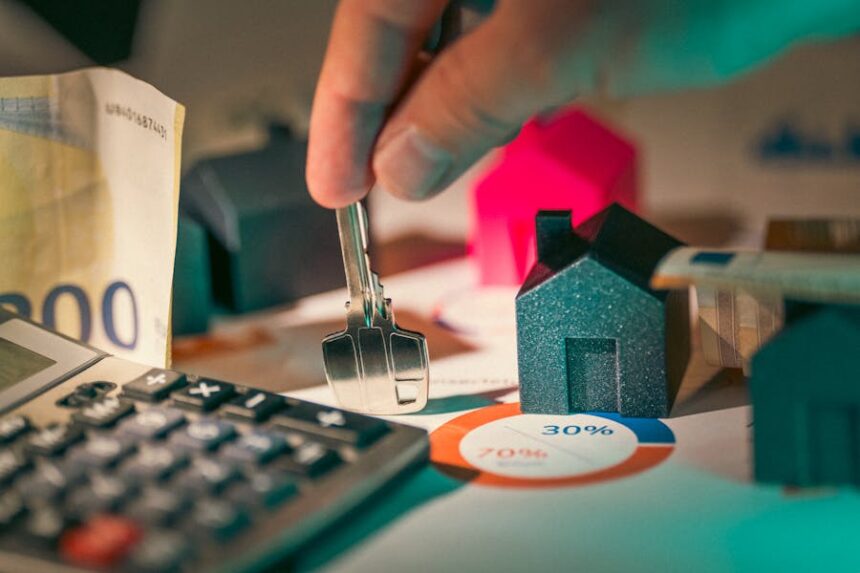The age-old question of whether to rent or buy a home is still valid in 2025. Housing prices are skyrocketing, and interest rates are at all-time highs. On the other hand, remote work opportunities are allowing renters more flexibility. As a result, more people tend to rent rather than buy property.
Renting is often seen as simply “throwing money away” compared to building home equity. But in today’s market, renting comes with financial upsides and lifestyle advantages that make it an increasingly appealing option for many. Rent prices have remained stable while home values have shot out of reach for average earners. With the ability to work remotely becoming commonplace, renters enjoy newfound freedom to relocate to more affordable areas without changing jobs.
Benefits of Renting a Home in 2025
Let’s first take a look at all the benefits you can experience by renting a property in 2025. If you want to continue renting for 2025, finding a professional property manager in Northern Virginia who can help with your concerns as a tenant is best. Then, you can get the most out of these benefits.
Lower Upfront Costs
The top benefit of renting in 2025 is much lower upfront costs compared to buying. Average home prices have reached over $800,000 nationally, requiring a down payment of $160,000 or more plus closing costs. Many buyers take out huge mortgages that leave them house-poor. Renters avoid this. With little paperwork, you pay the first month’s rent and security deposit to move in. This lets you get into a lovely home for under $5,000 rather than $200,000.
Monthly Savings
While buying can pay off long-term, renting often means saving money each month in 2025. Record high mortgage rates of over 7% mean payments exceed $4,000 for average homes. Rents haven’t ballooned nearly as much. Saving $1,000 or more per month lets you build savings, invest, or pay down other debts faster while enjoying a comfortable lifestyle.
Flexible Living Arrangements
Renting allows more mobility and flexibility. Typical leases run 12 months or less compared to a 30-year mortgage commitment, which better suits younger generations who change jobs more often. If work goes remote, you can relocate to a cheaper area or return home to save money without being tied to selling a house. Downsizing or upgrading homes is also easier based on evolving space needs and incomes.
Less Maintenance Responsibility
Owning a home means countless maintenance costs, from leaky roofs to broken appliances to yard upkeep. Landlords cover all repair costs on rental properties besides minor issues like clogged drains or light bulb changes. For busy professionals and families, not having these homeowner headaches can make renting the simpler, more enjoyable housing option, even if you can technically afford to buy.
Benefits of Buying a Home in 2025
Similar to the benefits of renting, buying a home in 2025 also has benefits. Here are a few of the most prominent benefits of them. As you go ahead with the decision of buying a home, make sure not to make any mistakes that first-time home buyers make.
Building Equity & Wealth
The #1 reason to buy instead of rent is building equity – an asset that grows in value over time. Despite high prices, homes remain worthwhile investments. Prices drop during recessions but historically always bounce back and rise long-term at rates exceeding inflation. This lets buyers build wealth as they pay down their mortgage principal. After 30 years, they own the home outright. Even selling after 5-7 years usually yields profit. Rent payments build no equity.
Tax Deductions
Real estate depreciation can’t be avoided, but it can help reduce tax liability. Homeowners enjoy substantial tax breaks. Mortgage interest, property taxes, and other homeownership costs are deductible on federal and sometimes state tax returns. This yields thousands in annual savings for itemizing taxpayers. Rent payments don’t qualify for deductions. Owing a home provides a tax advantage while building equity.
Stable Housing Costs
Thanks to fixed interest rates, mortgage payments stay consistent for decades. Landlords continue raising rents every year, which means that after a few years, monthly costs are often lower for buyers than renters in a given area. Paying a high mortgage payment locks in housing expenses for life, and rents never stop going up.
Customization Options
Owning means personalizing a home through remodels, landscaping, etc. Renters can only make minor changes and must pay fees for alterations. For many buyers, the ability to customize their castle to match their lifestyle outweighs the short-term savings from renting.
Making the Right Decision for the Evolving Housing Market
The housing landscape looks far different in 2025 compared to even a few years ago after seismic market and lifestyle shifts. This makes the rent or buy decision more dynamic. What’s right for one person may not be for another based on your financial situation, career path, family plans, and lifestyle priorities. Here are key factors to consider before concluding which option suits you best.
● Your income trajectory
Buying often makes more sense if you expect strong pay growth that will make today’s stretched prices feel comfortable later. Rent, if raised, won’t materially change your budget.
● Desired flexibility
Renting allows more mobility to relocate to new jobs, return to school, or other transitions. Buying means making a long-term commitment to an area.
● Settling down plans
Buying remains a smart move if you put down roots with a long-term partner, start a family, or need space to accommodate elderly parents. Renting retains flexibility.
● Investment preference
The equity homeowners build holds appeal as a forced investment. But you may prefer using savings for other assets like stocks, collectibles, etc.
● Ongoing budget
Ensure you can still comfortably afford other goals like travel, hobbies, or charity after accounting for ownership costs, such as property taxes and furnace replacements.
Final Words
No definitive templates exist for what’s “right,” given economic uncertainty and our evolving world. By carefully weighing your own motivations and financial abilities, you can determine whether renting or buying better aligns with this next phase of your life




